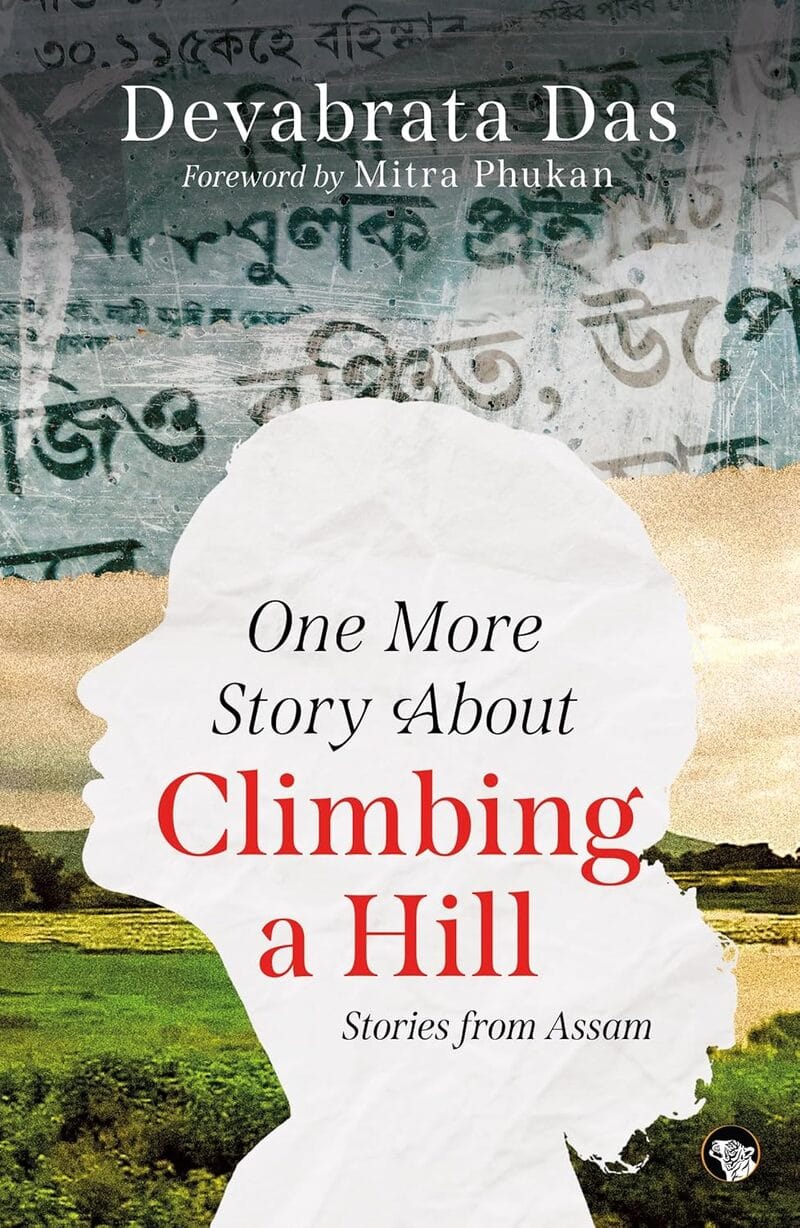One More Story About Climbing a Hill: Stories from Assam is the latest book by renowned Assamese writer Devabrata Das. This collection of eighteen short stories, translated from the Assamese original, offers a unique and varied portrait of contemporary Assam. Remarkably, despite being translated by several individuals, including the author himself, the prose maintains a cohesive and consistent style throughout. Several stories deal with both Assam’s historical, and contemporary political challenges.
The title story begins with a series of letters and phone calls to Barnali. The letters describe the shape and beauty of a hill, and the dream of one day climbing it together to “listen to the symphony of the pine leaves as they rustle in the wind which passes through them.” The narrative then shifts to an army patrol searching for terrorists on a winding mountain road. The officers spot a couple embracing and mistake them for insurgents. They open fire. The couple die on the hill. Later, one of the officers returns with a friend to the same spot, reflecting on humanity, loss, and love.
“A New Alphabet” is set in the 1990s, during the period when the United Liberation Front of Assam (ULFA) was fighting for independence from India. Papori, a young woman, had married a ULFA revolutionary who was killed in a clash with government forces while she was pregnant. His dying words were the chosen names for their unborn child. Their son, Suruj, is born after his death and now attends a local kindergarten. As some revolutionaries surrender while others remain underground, Papori becomes entangled in the tensions between the two factions. She turns her attention toward her son, reflecting on what kind of man he might grow up to be. Other stories deal with more domestic and personal affairs.
“A Night with Arpita” unfolds inside a train carriage. A civil servant becomes captivated by a young passenger in his compartment. Without speaking, and with time to kill, the narrator tries to understand why she seems so distressed. In the middle of the night, he wakes to find her hanging near the open door of the moving train, appearing uncertain about whether to jump. Eventually, she returns inside, still crying. She sees the man, and without exchanging a word, they embrace and return to their seats. The next day, he disembarks while she remains in the carriage. Their eyes meet—his filled with questions. Was it a look of gratitude? Or of contempt?
In “The Life of Animals”, Debu, while traveling in Mumbai, witnesses a middle-class man berating a horse-drawn carriage driver for taking six passengers—more than allowed. Though the horse looks tired; it’s clear the driver is poor. Debu is conflicted, understanding the driver’s desperation. Later that evening, he dines with old school friends, including one from a wealthy industrialist family who boasts about bribing union leaders to crush a strike at his factory. As the night spirals into excess and decadence, questions of justice, morality, and survival resurface. The evening ends with the group riding in a carriage like the one Debu had seen earlier.
A man is discharged from a hospital in “The Land of the Dead”, but lies unattended on a stretcher at the entrance, awaiting not his sons but the family’s driver. One son is a politician, another a businessman, a third a doctor, and the fourth exports skeletons abroad. Though wealthy, they have abandoned their father. Out of spite, he chooses to die. From the afterlife, he observes his own funeral—only to notice that the son who trades in skeletons is eyeing his corpse with a glint in his eye, seeing a fresh business opportunity.
Other stories in the collection explore a son’s devotion to his aging father, the burden of unaffordable medical bills, and the inner life of a human trafficker. The stories span themes of political turmoil, economic hardship, conflict, and personal loss. Yet, despite their sombre subjects, the book is never maudlin nor didactic; the writing is instead vivid and full of life, tightly crafted portrayals of everyday life in India’s northeast.

